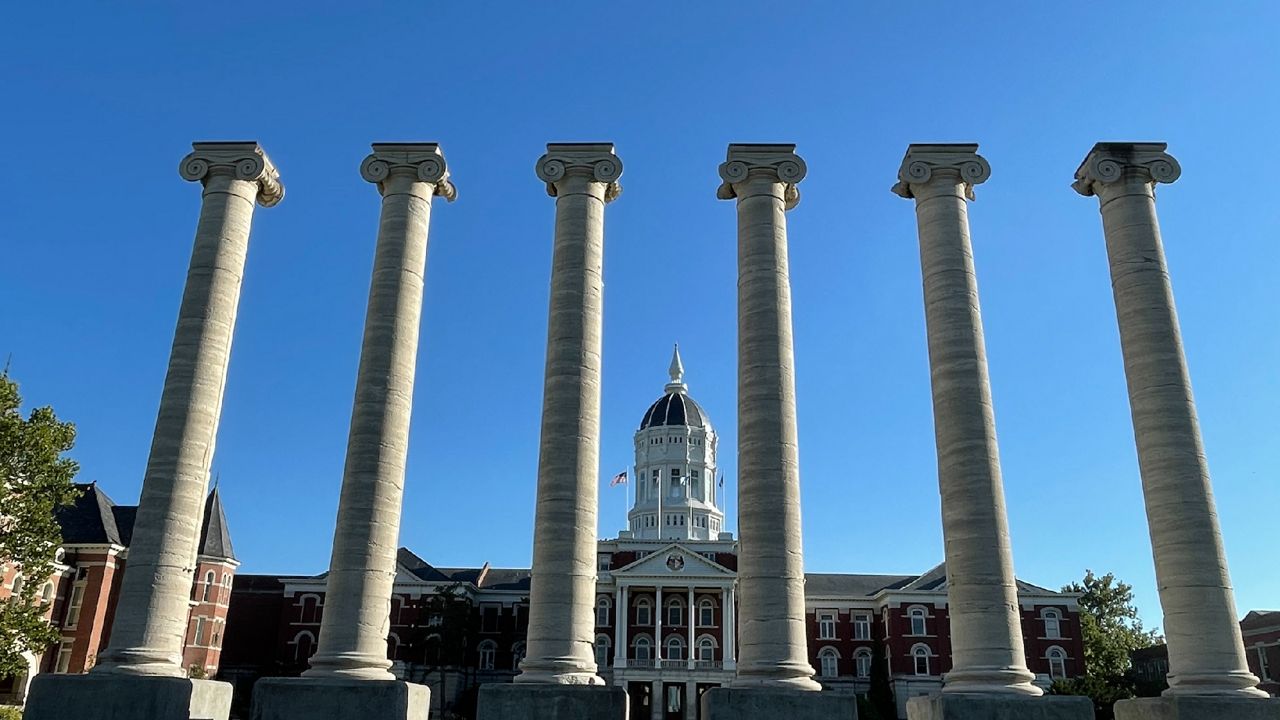ST. LOUIS— Colleges and universities in the St. Louis region are now in the process of reviewing their admission policies to see how Thursday’s Supreme Court decisions in a pair of affirmative action cases will impact their campuses and perspective students.
The court struck down affirmative action in college admissions declaring race cannot be a factor, overturning admissions plans at Harvard and North Carolina, the nation’s oldest private and public colleges, respectively.
University of Missouri President Mun Choi told reporters that the UM system doesn’t have race-based admission policies at the undergraduate level, but that there were some graduate programs that included race as one of many factors. Choi said the system would comply with the Supreme Court decision and a letter Thursday from Missouri Attorney General Andrew Bailey, which called on institutions to “cease their practice of using race-based standards to make decisions about things like admissions, scholarships, programs, and employment.”
Choi said the system will end race-based scholarship programs moving forward but the plan for the system now is to honor existing scholarship commitments made that had a race-based component. “We believe very strongly in the value of diversity in perspective, background and experiences that create a learning and research and engagement environment that advances the mission of the university, that’s critical,” Choi said.
“Is there a financial need and how do we fit that financial need, then we will figure out a way to keep this campus and all campuses diverse whether it be from background age, race, sex, national origin,” said Michael Williams, Chair of the UM Board of Curators. “What we want to do is give all Missourians a chance to be educated by our system if you’re qualified to get into our system. And if not we need to work on our high school, our community colleges whatever to help you get the education to move your family forward,” he said.
Washington University released a statement Thursday that said the court decision doesn’t change the school’s commitment to a diverse student body.
“We are reviewing the ruling to understand how it will impact our admissions processes, and we will make necessary adjustments to ensure that we are following the law. We will not waver in our commitment to creating a community where all are welcome, included and supported on their path to success,” the school said.
In a message to the campus community, Washington University Chancellor Andrew Martin had a message for current and prospective students from diverse backgrounds: “We want you here. We need you here. We will not waiver in our commitment to creating a community where all of our students are welcome, included, and supported on your paths to success,” he said, adding that the next school year would include campus dialogue and engagement on the subject.
In a letter to their campus community Saint Louis University President Fred Pestello and Provost Michael Lewis said the school already avoids race-based admission decisions.
"We will continue our work to expand access to Jesuit higher education. Each year for the past three years, we have admitted first-year undergraduate classes that are the most diverse in SLU’s history – in terms of many factors, including race. We also continue to serve increasing numbers of Pell-eligible and first-generation students. We have achieved these outcomes using evidence-based strategies and without using the race conscious admissions practices that today’s ruling restricts," the letter said.
"As we sustain our commitment to expanding opportunity, we must also ensure that every student who walks through SLU’s arches knows that they belong, and that they are valued. We each have a critical role to play in these efforts. Together, we will remain steadfast in our aspiration to be a community grounded in compassion, committed to justice, and working toward wholeness," it continued.
A spokesman for St. Louis Community College said the school would reserve comment.
Leadership of the Southern Illinois University system released a statement saying that while it does not use race as a factor in undergraduate admissions, it was concerned about the rulings.
“Despite this decision, the impact of which will continue to unfold, our goal will be to work within all legal limits to ensure our campuses are able to advance all mission-based ADEI (anti-racism, diversity, equity and inclusion) goals and to promote the ideal that educational excellence depends on having institutions that condemn racism, promote diversity and inclusion and equitably focus on giving all students the tools they need to succeed in their college experience and beyond,” the statement said.
The Illinois Board of Higher Education (IBHE) said the state’s colleges and universities were committed to closing equity gaps and to make college more affordable. “Our work toward an equitable higher education system will continue unabated because diverse and inclusive campuses and student bodies are critical to developing a well-rounded understanding of the world we live in and those with whom we share it,” the agency said, adding that equity in higher education was tied to the state’s economic growth.




